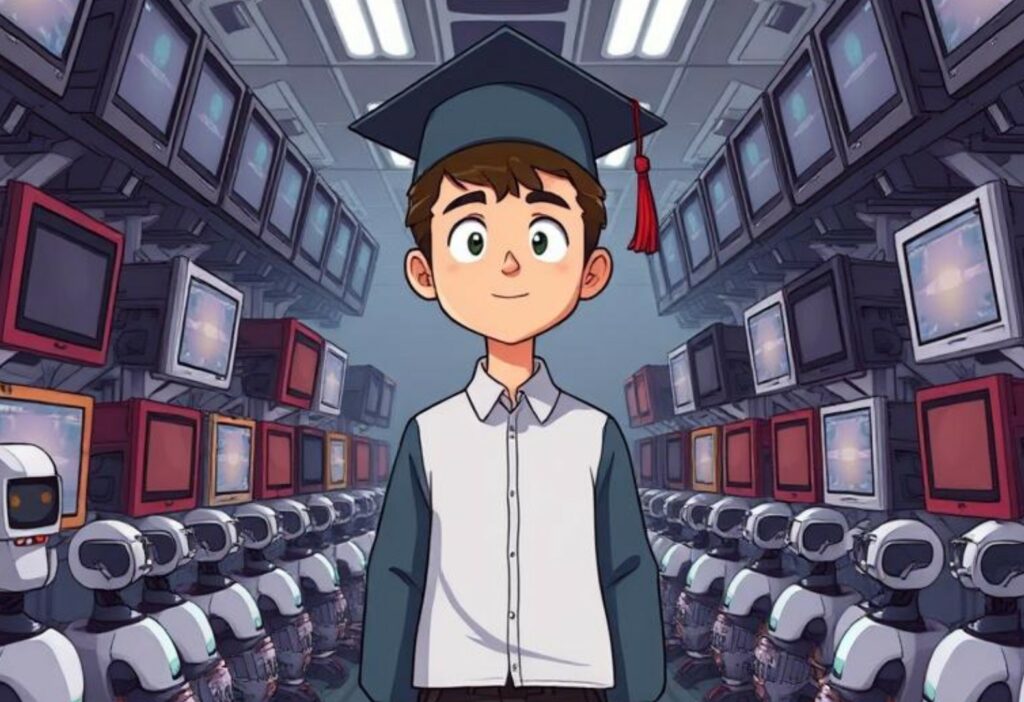
Once upon a time, a degree in computer science was a guarantee of success. Competitive salaries, generous benefits, and immediate employment opportunities were the norm. Today, however, for many young graduates in 2025, the reality has turned out to be very different.
Azka Azmi, a recent spring graduate, told the Toronto Star she’s sent out hundreds of applications without a single response. “It’s like talking to a machine,” she explained, describing an increasingly impersonal and frustrating selection process.
Statistics confirm this trend. In Ontario, job opportunities in software development and programming decreased by 25% between 2020 and 2024. Entry-level positions—traditionally the first step into the IT world—are disappearing, crushed by a combination of factors: automation driven by artificial intelligence, economic uncertainty, and the exponential growth of computer science graduates.
At Toronto Metropolitan University, for example, the number of students enrolled in computer science courses increased from around 690 in 2016 to over 2,000 in 2024. Similar increases have been seen at other Canadian universities such as Waterloo, York, and Wilfrid Laurier.
Eric Alexander, senior director of technology recruiting agency Arcadia, emphasized that over the past decade, young people have been strongly encouraged to pursue a career in IT. However, today the market is saturated: there are too many candidates and too few positions available.
Further complicating the job search is artificial intelligence, which companies use to filter resumes and even draft responses to candidates. Some companies insert specific details or “traps” into their ads to unmask automatically generated applications: a golf-themed presentation or a French dessert recipe, for example, become hidden tests to verify the authenticity of applications.
Meanwhile, pressure is mounting among students. A doctoral student at the University of Toronto reported that many colleagues experience constant anxiety, to the point of risking burnout. The intense competition and extremely competitive academic environment are impacting the mental health of many young people.
Chrisee Zhu, a student at the same university, decided to reduce her computer science major to a minor, overwhelmed by the stress of internships and constant preparation for job interviews. “During group work, no one could concentrate,” she said. ” Everyone was just thinking about how to practice for interviews or apply for a new internship.”
Elliot Chen, a computer science graduate, also experienced similar difficulties: after sending out hundreds of resumes and receiving only rejections due to his lack of experience, he chose to enroll in a master’s program. However, he received even fewer responses from employers than he had as a college student.
Eyal de Lar, chair of the Department of Computer Science at the University of Toronto, offers a more optimistic view. He believes that artificial intelligence won’t drastically reduce jobs in the sector, but could actually create new ones. He recalls that after the dot-com crisis, about 15 years ago, enrollment in computer science courses plummeted, but the market later recovered, subsequently outpacing the demand for skills.
“This is just a moment of transition, not the end of an era,” he declared, urging young people not to lose sight of the importance of human relationships and direct communication.
Yet for many recent graduates, the reality remains harsh. Today, artificial intelligence is not only replacing human labor in companies, but it also appears to have replaced humanity itself in the selection process. When a candidate’s career path is decided by an algorithm and job offers require “a year of experience” from those who haven’t yet had a job, the golden myth of computer science seems to be fading.
Follow us on Google News to receive daily updates on cybersecurity. Contact us if you would like to report news, insights or content for publication.
